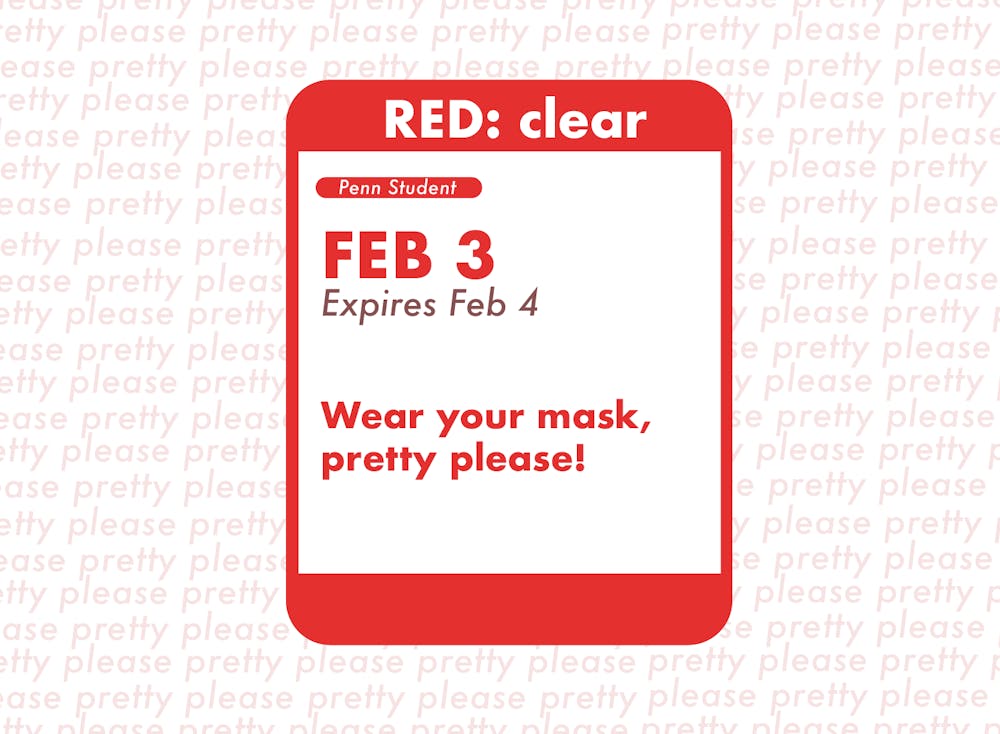With first years already seen partying on campus, one might expect that offenders would have experienced a myriad of severe disciplinary action by now. Yet, it has become a running joke that partygoers are getting off scot–free and are continuing to break COVID rules even after being caught. Clearly, Penn is off to a rough start in enforcing social distancing rules, and the lack of punishment of COVID rule violators will further promote rule violations and, inevitably, more COVID spread.
Penn correctly understood that stringent safety regulations were required as thousands of students returned to campus. With the implementation of a two-week Quiet Period, Penn follows the rules of quarantine as provided by the CDC. After the Quiet Period, students are restricted to close contact with only those in their residential pods. All of these rules are reasonable and backed by science, but simply communicating the rules is not enough. Penn needs to actually enforce these rules, and enforcing them requires punishing rule-breakers.
The city of Philadelphia has cracked down on business owners who haven’t complied with the city’s COVID protocols. These business owners arguably have justifiable reasons for breaking COVID rules, given that many need to keep their businesses open to survive. Partying, on the other hand, is just about as nonessential as it gets. Therefore, there is no reason for Penn to not discipline students who participate in parties and large social gatherings, whose actions put the Penn community at risk. However, the Student Compact does not mention any specific punishments for noncompliance; this is especially disheartening. Without a clear message of retribution for infractions, Penn does not provide a sufficient deterrent to prevent students from participating in large social gatherings. Not only would punishment discourage rule-breakers, it would also serve as an example to others who plan to break rules. Other schools have used punishments such as fines, suspensions, and expulsions for violating their COVID rules. While I am not arguing for anything as extreme as expulsion, the clear implementation of strict punishments for violations of the Student Compact is crucial to demonstrating Penn’s commitment to community safety and deterring students from participating in such events.
While there is some merit to trusting Penn students to act in the best interests of those around them, Penn should have recognized the inherent moral conflict college students face as they seek social affirmation. I am not absolving any of the rule-breakers from responsibility for their actions, but with ever-increasing pandemic fatigue, everyone is itching for a sense of normalcy. First years especially, who are eager to meet new people, might prioritize social gatherings over social distancing. Last semester, while Penn told most students to stay at home, many other universities opened their campuses for hybrid semesters, resulting in thousands of COVID cases. Much of this was due to super-spreader events such as large parties and sporting events. Let’s not pretend that Penn students are somehow immune to the same urges to socialize as other college students. Students living off-campus last semester were already throwing maskless parties and generally not following Penn’s social distancing rules. There is no doubt that this will be amplified this semester if the current lack of COVID guideline enforcement continues.
With the Quiet Period ending, students will inevitably feel the urge to socialize more. The people of West Philadelphia are already angered by Penn’s decision to welcome students back on campus for fear of a potential surge in cases. Penn needs to prove that they did not make the wrong decision in bringing students back. Of course we must continue to remain proactive in social distancing and hold each other accountable. However, the course this pandemic takes on campus and in West Philly hinges much more on Penn’s ability to shut down and prevent the inevitable attempts at partying and gatherings. Without stricter punishments, rule violators will continue to party, assuredly resulting in outbreaks. Penn owes it to students and faculty, as well as to the residents in West Philadelphia, to commit to their safety and more stringently enforce the COVID rules they have put in place for this semester.
MATTHEW LIU is a College sophomore from Allentown, Pa. studying biochemistry. His email is liumatt@sas.upenn.edu.









